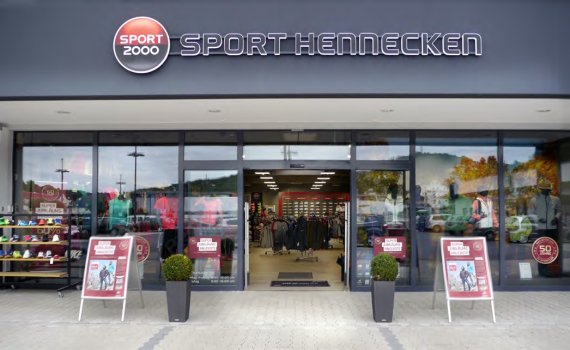
It was a bold thesis that e-commerce expert Jan Kegelberg put forward in his contribution to the ISPO Re.Start Days: "In five years at the latest, the wholesale retail model will be dead." This sentence from the former Chief Digital Officer and co-director of SportScheck carries weight. Can you leave it like that? We asked someone who had a different perspective on the situation: Markus Hupach, co-managing director of Sport2000 EU for almost a year. He considers wholesale to be irreplaceable in the long term. A debate about the future of our retail landscape.
Markus Hupach: “The blanket statement that wholesale is dying is not right. The wholesale can very well be saved from total ruin. The future of the wholesale model lies above all in a clear profile and consistent strategic orientation. If wholesalers manage to play out their strengths with consumers and expand them further, then it will continue to be relevant.
First of all, it is enormously important to look at the situation in a differentiated way and not to draw generally valid conclusions for the entire sports retail sector on the basis of the development that is happening in part of the wholesale business. Because away from the high streets with the big box retailers, who have to struggle with high fixed costs on the one hand and decreasing frequencies on the other hand, there are wholesale models that work very successfully, enjoy great popularity among consumers and will continue to be successful in the future.
The difference is primarily the strategic orientation of the retailer. Successful wholesellers manage to consistently orient themselves to the needs of the consumer. Specialization, individualization and relevant brand selection play an enormous role for consumers today. Added value must be clearly noticeable and you have to be the absolute expert in what you do. This is the only way to avoid alternatives to consumers, who are now very well informed, but also to brands.
In this context, we don't see the selective distribution policy of the brands as a nail in the coffin for the wholesale business either. Yes, there are retail formats and brands where this has a clearly negative impact. For our specialists, the selective distribution policy is advantageous because it has a positive effect on the demand, the desirability of the brand and the relevance of the retailer to his customers. Our very close, strategic cooperation with (premium innovation leader) brands is of utmost importance.

A differentiated view is also worthwhile for D2C (direct-to-consumer) business. Studies have shown that many brands have to struggle with the necessary brand strength in the long term. 74 percent of all brands worldwide are irrelevant to the consumer - therefore, even a sustainable D2C business as a stand-alone seems challenging. Therefore, the effect of D2C stores is only valid for a few brands and categories, but in this area it is even more so.
In the running, winter, and outdoor segment, for example, the wholesale business is less influenced by the D2C business because there is "healthy competition". Here, too, we can see that retailers who focus on their category winners continue to do very good business. This is also due to the fact that, unlike the D2C business, they cover the entire category and can offer brand-independent advisory expertise in all product groups. However, wholesalers must not disappoint their consumers, otherwise they will migrate much faster today. Customer loyalty has a much shorter half-life than in the past, especially when disappointments occur.
There are really very good market participants in the e-commerce sector who understand their business perfectly and act similar to the stationary specialists described above. The good ones manage to transfer the very high quality consulting into the digital world. However, there are currently only very few of them and many are working on appropriate tools. However, innovation, products and individualisation are not easily presented on the World Wide Web, nor are the topics of trying out, trying on, fitting, etc. The requirement to be an expert in e-commerce is similarly high to that of being a stationary expert. It must work perfectly, otherwise you will lose the consumer here as well. This is why it is so important for wholesellers to build and maintain their own customer communities.
I therefore do not see the wholesale sector as being doomed to total extinction by D2C activities, but rather as being called upon to become aware of its own strengths and orientation, to commit itself to constant transformation, to push ahead with digitalization at full speed and to stay close to the consumer. Innovate or die!
 Sports BusinessSponsorship between fairness and image
Sports BusinessSponsorship between fairness and image Sports BusinessHow AI simulates your target group - and the benefits
Sports BusinessHow AI simulates your target group - and the benefits
- Awards
- Mountain sports
- Bike
- Fitness
- Health
- ISPO Munich
- Running
- Brands
- Sustainability
- Olympia
- OutDoor
- Promotion
- Sports Business
- Textrends
- Triathlon
- Water sports
- Winter sports
- eSports
- SportsTech
- OutDoor by ISPO
- Heroes
- Transformation
- Sport Fashion
- Urban Culture
- Challenges of a CEO
- Trade fairs
- Sports
- Find the Balance
- Product reviews
- Newsletter Exclusive Area
- Magazine




